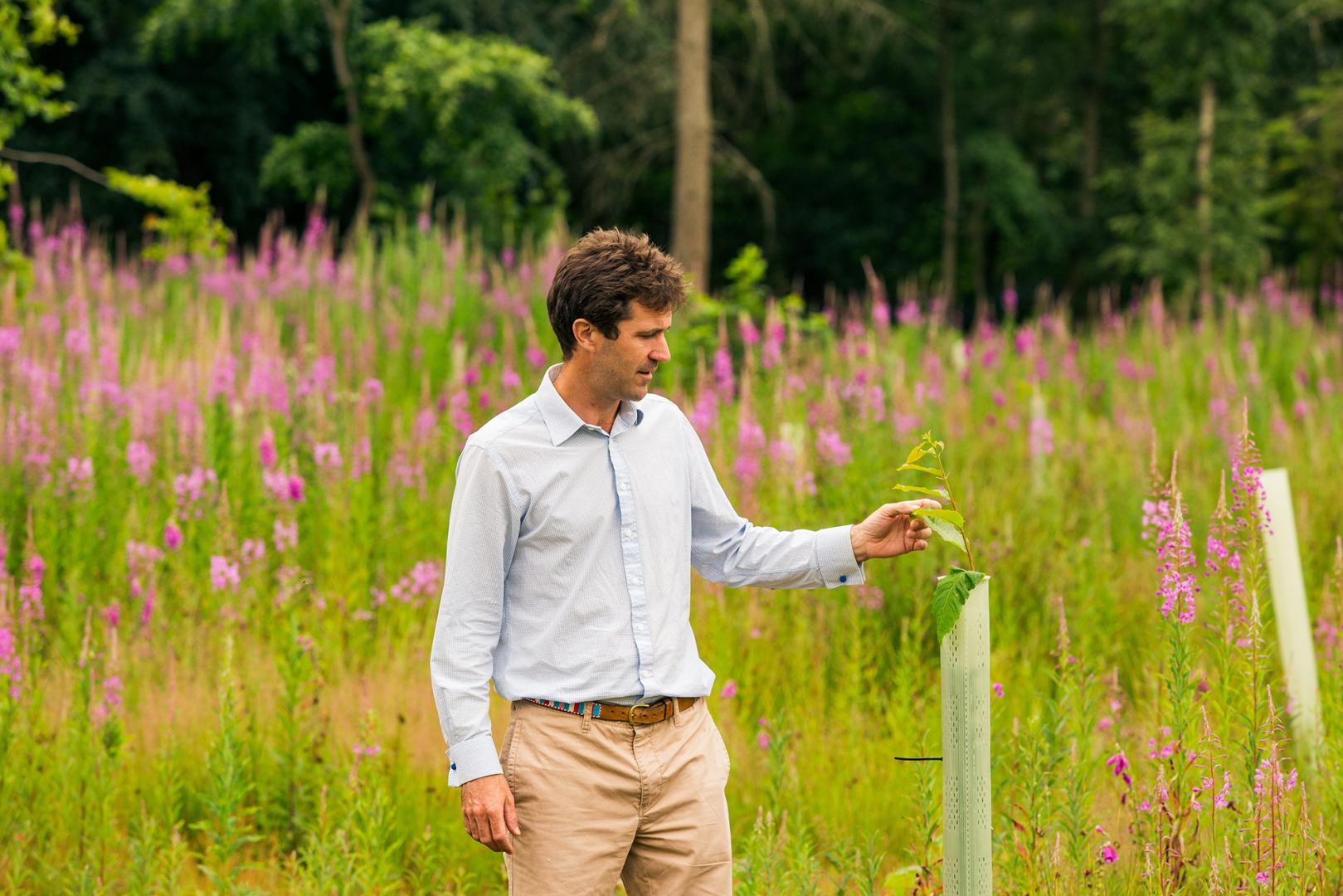A TEESDALE business says it is creating a “market for nature” by encouraging major companies to plough money into environmental projects on farms and moors.
In return, corporate businesses will be helped to offset their carbon footprint.
They can buy “carbon credits” – tokens representing a set amount of CO2 kept out of the atmosphere – from landowners who have carried out nature projects, such as woodland planting.
Companies have been buying these credits from places such as the Amazon rainforest, with some facing accusations of “greenwashing” due to hard-to-prove eco-claims.
Now a Teesdale company, Climate Solutions Exchange (CSX), has created a scientific method of accurately measuring how much CO2 is being stored by new tree and hedge plantations and peat restoration. Working with local landowners, they will act as a market place for corporations wanting to “buy” carbon in the UK.
CSX is the brainchild of Andy Howard and Sir Ed Milbank, owner of Barningham Estates.
Mr Howard said: “Big businesses can’t really buy carbon in the UK, so they are forced to look elsewhere. They are trying to do the right thing but risk being accused of greenwashing. We are creating a market for nature here in the UK.”
The Woodland Carbon Code is used to verify carbon units, encouraging private investment to create new woods.
Sir Edward added: “We realised the Woodland Carbon Code system is skewed towards big projects – it’s expensive and uses science from the 1950s and 1960s to measure carbon sequestration – with a tape measure and a small section of the wood to model data.”
He says the data is poor and underestimates the amount of carbon being stored.
The company uses state-of-the-art technology with laser scanners, drones and the latest computer software. Photographs are stitched together to create a 3D digital model of the woodland, meaning that the trees can be counted, not roughly estimated.
Sir Edward said: “Until now, only big projects could access investment but we have created a system based on good quality science to open up the opportunities to everyone. We use laser scanners and drones, not tape measures.”
He said agricultural policy is moving towards nature restoration but this usually only has one main source of funding – from the government.
He said: “Let’s say in Teesdale, a farmer is going to plant a buffer strip of woodland near the Tees – it will improve habitat, stop agricultural run-off and reduce flooding.
“These are the benefits of a simple land management change. If we can capture that benefit and sell it to the market, then we win on all counts. The farmer wants to do it, big companies want to do it – we are there in the middle to make it happen with map-based, geo-linked quantifiable data that allows those carbon contracts to be bought and sold.
“Businesses which buy through CSX are provided with a digital audit trail of the carbon and biodiversity credits. They get the integrity.”
The start-up company won a £500,000 government grant two years ago to develop the system. CSX has now received investment of £2.5million from companies which will enable it take the product to the market.
Experts say peatlands are capable of absorbing and storing large amounts of carbon dioxide. Restoration includes blocking up drains historically cut into the peat to improve agricultural productivity and planting moss to establish a healthy sphagnum moss layer, which provides the peat with long-term stability and helps restart the process of locking up carbon.
Work is already taking place in the Teesdale area but Sir Edward says his scheme could generate private investment to speed up the process.
“The question is, how do you pay for it? If we can get money from private business, we can do so much more. All moor owners will start restoring peatlands. It’s a win-win,” said Sir Ed.
Under the scheme, businesses buy the carbon units, not the land.
“It is designed to keep the land manager on the land and gives the farmer access to capital,” Sir Edward said.
Habitat improvements will also be used to market “biodiversity net gain” credits in the same way.
Mr Howard said CSX would help companies avoid allegations of greenwashing.
He said: “When you look at what is genuinely happening with some of these commitments, these carbon offset projects, in the Amazon and in the developing world, it genuinely is greenwashing. And businesses need to take notice. If they don’t want to be accused of that, they’ve got to take responsibility for making sure that what they’re saying is being delivered is actually happening.
“Corporates have said to us they can pay to protect a peat bog in Indonesia but they can’t pay to protect a peat bog 20 miles away in the North York Moors, because the system doesn’t allow them to do that.”
Examples being offered to corporate firms include 50 hectares of peatland restoration in North Yorkshire. CSX says 2,000 tons of carbon is available over 20 years to buyers from this site.
Landowners are welcoming the chance to get involved.
Mark Cunliffe-Lister, of Swinton Estate, in Ripon, said: “Farmers and landowners are increasingly required to create environmental benefits alongside their food production.
“In addition to the public funding, it is imperative that access to private carbon and biodiversity markets are established to support continued sustainable land management.”
ADVERTISEMENT
Dale landowner pioneering £2.5m carbon offset project
ADVERTISEMENT
ADVERTISEMENT
ADVERTISEMENT






